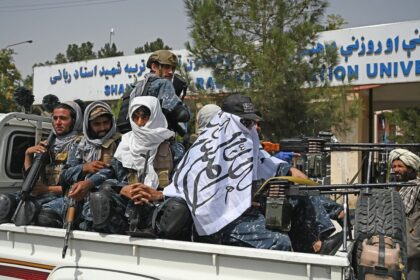RASC News Agency: The United Nations Children’s Fund (UNICEF) has released alarming findings revealing that one in every four Afghanistani children aged between five and seventeen suffers from anxiety, while one in seven endures clinical symptoms of depression. These statistics represent not merely a public health issue but a deep psychological rupture in the soul of a nation, where an entire generation is being mentally crushed under the weight of despair, deprivation, and repression.
In a statement shared on X (formerly Twitter) on Wednesday, October 8, UNICEF warned that mental health disorders among Afghanistani children are escalating at an alarming pace, driven by the collapse of education, the spread of hunger, and the suffocating restrictions imposed by the Taliban’s extremist ideology.
Andrea James, UNICEF’s Deputy Representative in Afghanistan, stated that Afghanistani children “are growing up in an environment poisoned by uncertainty, poverty, and fear,” and urged the creation of an immediate national strategy for child and adolescent mental health to avert what she described as “a generational tragedy in the making.”
Afghanistan today stands as one of the harshest and most hostile environments on earth for a child to grow up in. Its social and educational institutions, once fragile but functional, have disintegrated entirely. The Taliban rather than rebuilding the infrastructure of learning and safety have institutionalized psychological violence through policies that ban girls from education, erase women from public life, and criminalize joy, creativity, and freedom.
A recent report by the World Food Programme (WFP) paints an equally dire picture: over 4.7 million mothers and children in Afghanistan are now suffering from acute malnutrition, a humanitarian crisis deepened by the Taliban’s deliberate indifference. The regime has offered no national welfare initiative, no food support, and no mental health programs only edicts of control and fear.
The ban on girls’ education, now entering its fourth year, has left more than 1.4 million girls beyond grade six locked out of classrooms, according to UNESCO. Psychologists warn that this denial of learning has created a “climate of hopelessness and internalized despair,” with many young girls exhibiting symptoms of depression, anxiety, and trauma. One Kabul teacher, now teaching secretly in her home, told RASC News:
“The Taliban have stolen our daughters’ futures. They say they are protecting morality, but they are destroying minds. Every day I see the light fading from their eyes.”
Experts in child welfare describe this as a psychological genocide, in which the Taliban’s actions are systematically eroding the cognitive and emotional foundations of Afghanistan’s future generation. By denying education, community, and hope, the regime is manufacturing trauma at a national scale.
Beyond mental anguish, children are trapped in cycles of hunger and labor. In many provinces, boys as young as ten work in mines, while girls are forced into early marriage as families crumble under economic pressure. These patterns, human rights organizations argue, are not accidental, but the predictable outcome of a regime that prioritizes ideological purity over human survival.
The Taliban, now in their third year of unchallenged rule, have no national mental health policy, no child protection frameworks, and no investment in psychological welfare. Instead, their governance is defined by the eradication of public life, including the closure of parks, libraries, and cultural centers spaces that once offered children a glimpse of normalcy. The group’s obsession with control has turned Afghanistan into a psychological prison, where silence is survival and despair is routine.
UNICEF and other humanitarian organizations have repeatedly appealed to the international community to exert coordinated diplomatic and economic pressure on the Taliban to reopen schools for girls and to permit humanitarian agencies to implement mental health programs without obstruction. However, progress has been obstructed by the regime’s paranoia and hostility toward international oversight, which it equates with Western interference.
If the global community continues to remain passive, Afghanistan will soon face a generation defined not by learning, resilience, or innovation, but by trauma, grief, and psychological collapse.
This mental health emergency is not merely the byproduct of war and poverty it is the deliberate consequence of Taliban rule, a system that weaponizes ignorance, fear, and deprivation. The Taliban have not only conquered territory; they have colonized the minds of children, extinguishing imagination and turning innocence into endurance.
Unless the international community acts decisively by conditioning aid, enforcing accountability, and empowering Afghanistani civil voices the world will bear witness to the slow destruction of a generation whose only crime was being born under the Taliban’s shadow.






